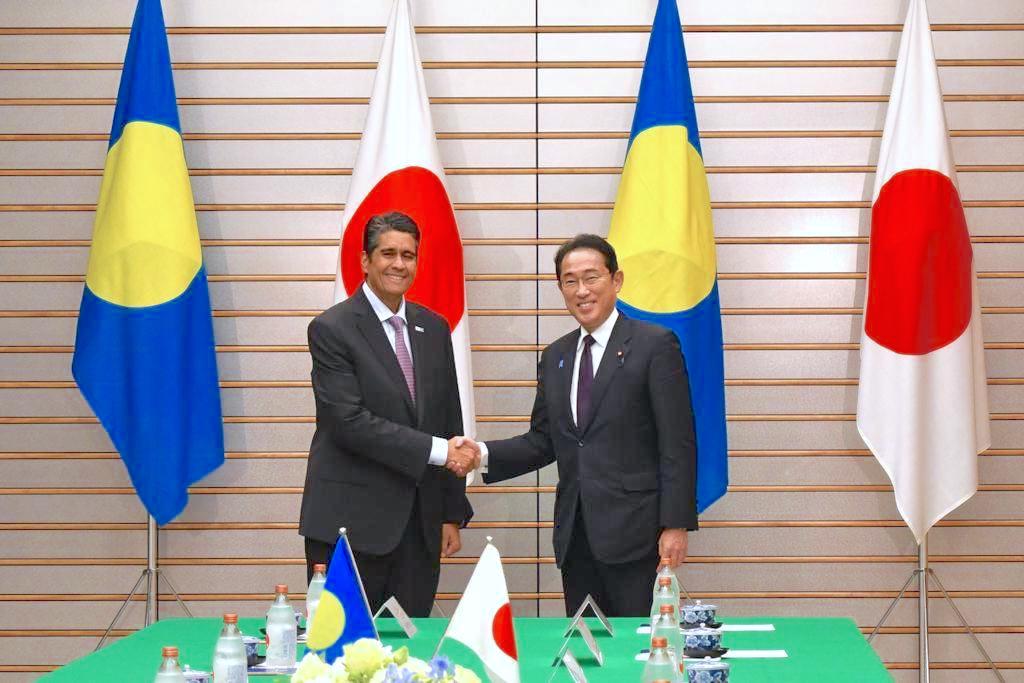The Pacific Collective on Nuclear Issues, composed of civil society groups, non-governmental organisations and movements in the Pacific expresses grave concern that Japan is proceeding with its plan to discharge 1.3 million tonnes of Advanced Liquid Processing System (ALPS) treated radioactive wastewater from its destroyed Fukushima Daiichi Nuclear Power Plant into the Pacific Ocean in the coming months.
“We call on the Japanese Government and the Tokyo Electric Power Company (TEPCO) to abandon this plan effective immediately,” a statement said.
The Collective expressed disappointment in the Japanese Government and TEPCO’s shameless disregard of the calls of the Pacific Islands Forum to hold off on any such release based on independent findings of its panel of five scientific experts. The data provided by the government of Japan and TEPCO for the scheduled release is scientifically unsound and the proposal to proceed with their plan constitutes a brazen threat to Pacific peoples’ livelihoods, safety, health and well-being, and the sovereignty of Pacific nations.
The Collective also condemned Japan’s diplomatic efforts to fracture the long-held regional position of Pacific states in defence of a nuclear-free Pacific. Papua New Guinea’s Prime Minister James Marape has retracted his earlier statement of support for Japan’s plans but said he had ‘faith’ in former Prime Minister Yoshihide Suga and current Prime Minister Fumio Kishida as ‘both leaders [had] given their assurance that Japan was doing everything in its power to maximise the safety of the nuclear wastewater and would not allow its release until safety has been confirmed based on scientific evidence’.

Palau’s President Surangel Whipps, Jr has also reasserted his confidence in the government of Japan, which has been working with the International Atomic Energy Agency (IAEA) to ensure they maintain international standards on the management of nuclear wastewater.
The findings of the independent panel of scientific experts commissioned by the Pacific Islands Forum were unequivocal. The data provided so far to support Japan’s claim that the treated wastewater is safe is far from reliable and inconsistent. If the Japanese Government and TEPCO believe the water is safe they should be prepared to safely dispose of it within Japan.
“We do not feel assured by the IAEA’s confidence in the safety of Japan’s proposal as the agency’s remit is promoting the safe use of nuclear energy. The Pacific’s long-standing commitment to nuclear abolition includes opposing all forms of nuclear harm to our people, our earth and our ocean, including from uranium mining, nuclear weapons, nuclear testing and nuclear waste.
“We call on the Japanese Government and TEPCO to respond publicly to the independent panel of scientific experts and the Pacific Islands Forum.
“We call on PNG Prime Minister James Marape, Palauan President Surangel S. Whipps, Jr. and all Pacific leaders, to invest their trust and support in the independent panel of scientific experts, and publicly retract any statements in support of the Japanese Government, TEPCO and IAEA.
“We support the 26 June statement by the Secretary General of the Pacific Islands Forum, Henry Puna, in reiterating the legal obligations of Pacific states under the Treaty of Rarotonga, “to prevent the dumping of radioactive wastes and other radioactive matter by anyone” and “not to take any action to assist or encourage the dumping by anyone of radioactive wastes and other radioactive matter at sea anywhere within the South Pacific Nuclear Free Zone,” said the statement.
“Finally, we condemn the numerous attempts by Japan to increase its Overseas Development Assistance (ODA) as a means of placating our leaders and buying support for its irresponsible and dangerous plan. Over the past few months, we have observed Japan escalate its engagements with Pacific leaders across the region. The backsliding statements by two leaders from the long-held regional nuclear-free Pacific position (formalised in the Treaty of Rarotonga, South Pacific Nuclear Free Zone) suggests that development assistance is being deliberately weaponised as an insidious tool to achieve compliance. This desperate attempt by Japan to get its way will only bring it disrepute.
“We call for Pacific leaders to initiate a lawsuit against Japan at the International Tribunal on the Law of the Sea (ITLOS), and seek provisional measures to protect against the trans-boundary harm on present and future generations of people of the Pacific, our marine environment, food safety and security, economic livelihoods and inter-generational health and wellbeing which altogether will constitute serious contraventions of Japan’s obligations under international law if it proceeds with nuclear wastewater dumping” it said.
📢 STATEMENT 📢
Pacific groups condemn Japan’s attempts to dismantle Pacific solidarity against Fukushima nuclear waste plans
Pacific People Call for New Clear Ways‼️#NewClearWays #NoToFukushimaDumping #NuclearJustice #NoNukes #BanNukes #NuclearFreeAndIndependentPacific pic.twitter.com/geZXe5bXvk
— PANG (@pangmedia) July 4, 2023
SOURCE: YOUNGSOLWARA PACIFIC/PACNEWS













